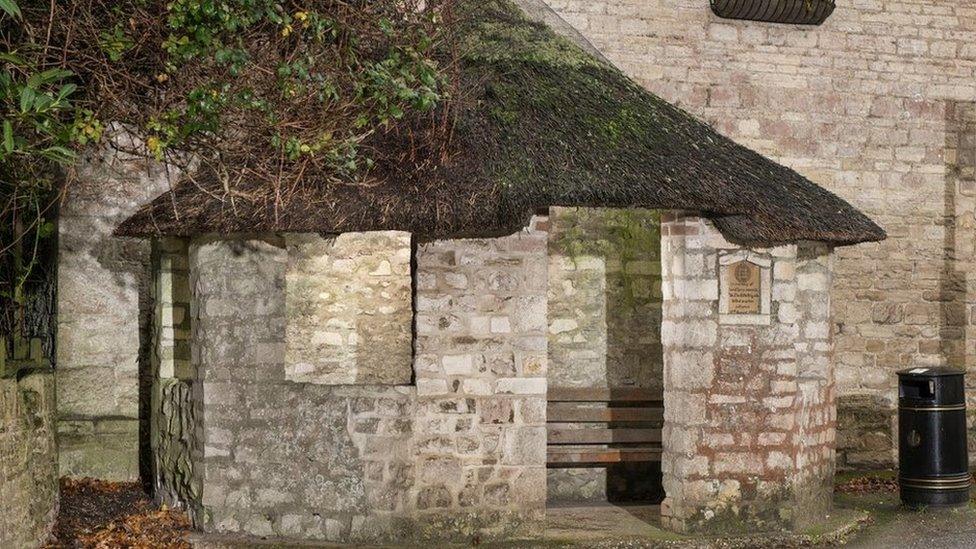Thorney's landmark 'Canary Cottage' gets Grade II listing
- Published
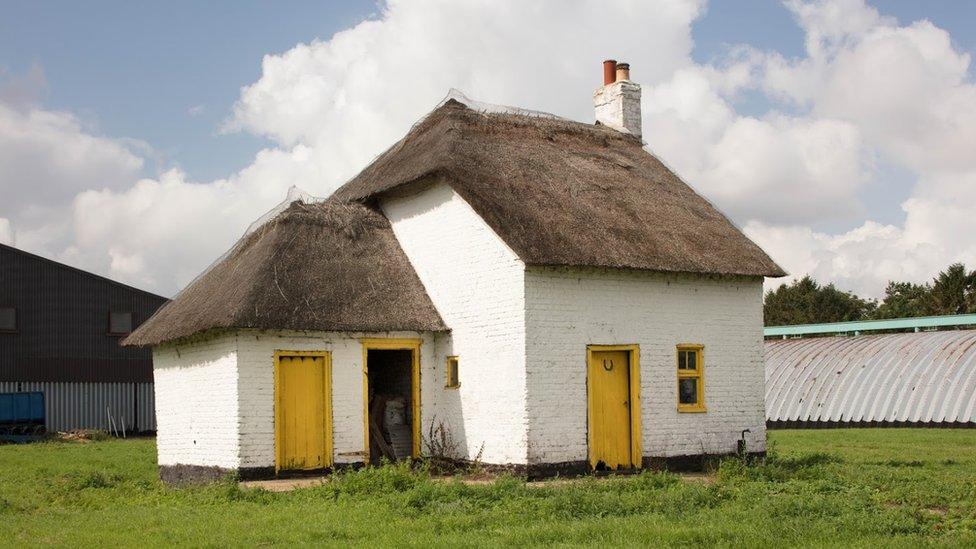
The small cottage offered very basic accommodation to its most recent residents, who moved out in 1965
A thatched farm worker's cottage known to generations of travellers using a busy A road has received listed status.
Canary Cottage, at Knarr Farm beside the A47 near Thorney in Cambridgeshire, was built in about 1750, shortly after the drainage of the Fens.
It is a "rare surviving example of a mid-18th Century fenland cottage", according to Historic England.
The cottage, which has not been lived in since the 1960s, has received Grade II-listed status.
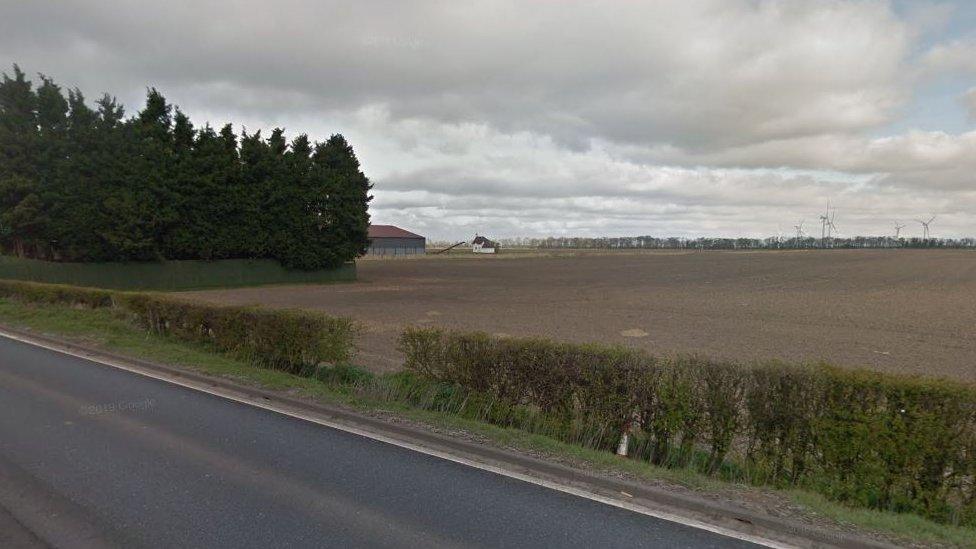
Travellers can see the white-painted building clearly from the A47 Wisbech Road between Guyhirn and Thorney
The cottage's distinctive yellow paintwork gave it its name.
This dated from the early 20th Century, when Knarr Farm's then-owners, the Dixon-Spain family, used a colour coding scheme to identify their buildings and machinery.
The brick-built L-plan building offered basic living conditions to its last residents, Ken and Thelma Wright.
They met through working on Knarr Farm in the 1950s, before moving out in 1965.
There is a sitting room and kitchen downstairs and two bedrooms upstairs - the only toilet is in a outbuilding.
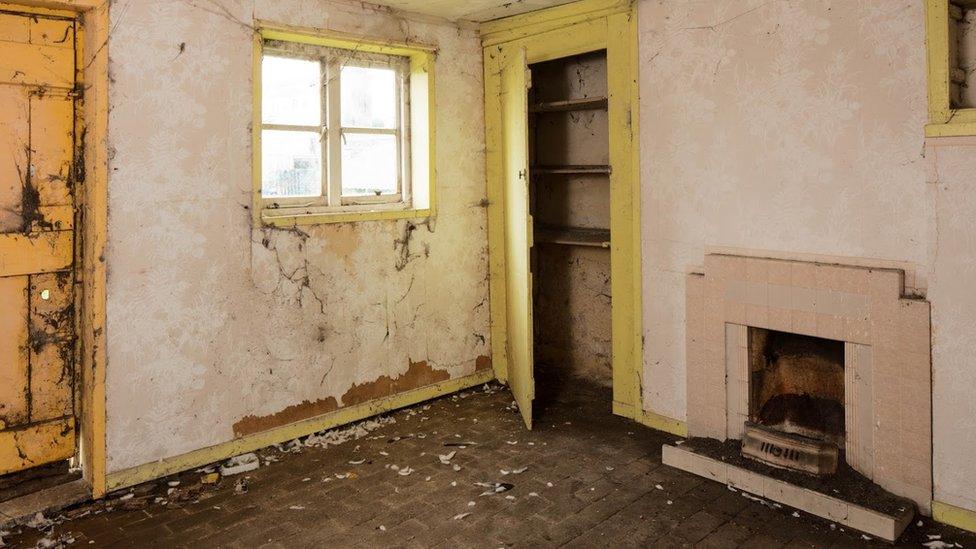
The little sitting room has an open fire
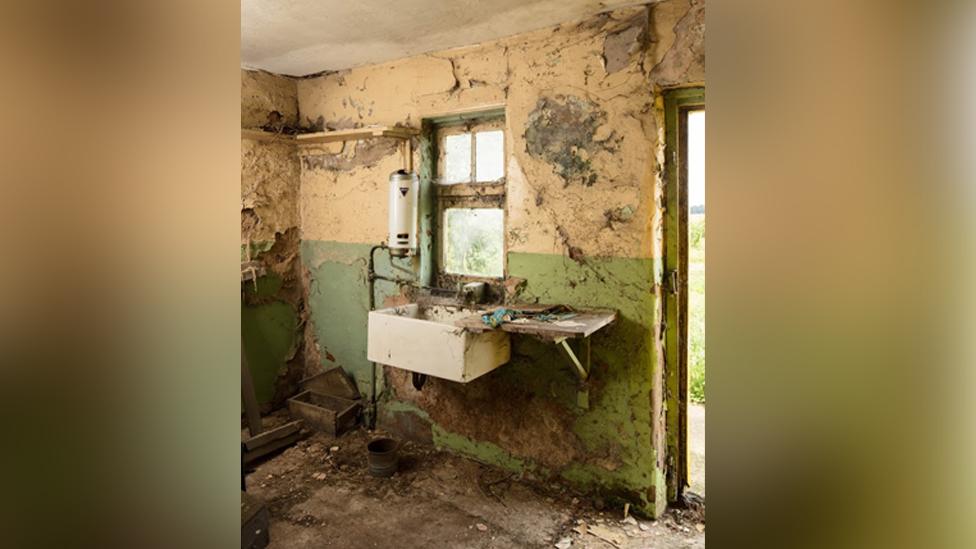
The kitchen has one tap, which is linked to a water heater
Peter Fox, managing director of the building's current owner Dalton Seeds, said: "We would like to see Canary Cottage maintained for future generations and will in time look at some refurbishment."
Historic England said it believed the "characterful local landmark" inspired one of the cottages in the Lilliput Lane miniatures series, external.
Tony Calladine, regional director for Historic England in the East of England, said: "By protecting it we are helping to ensure it can be enjoyed by future generations, helping them to understand life in the Fens in times gone by."
Historic England said it hoped people would share their own stories, memories and photos of the cottage through its Enriching the List project, external.
You may also be interested in:
- Published9 June 2019
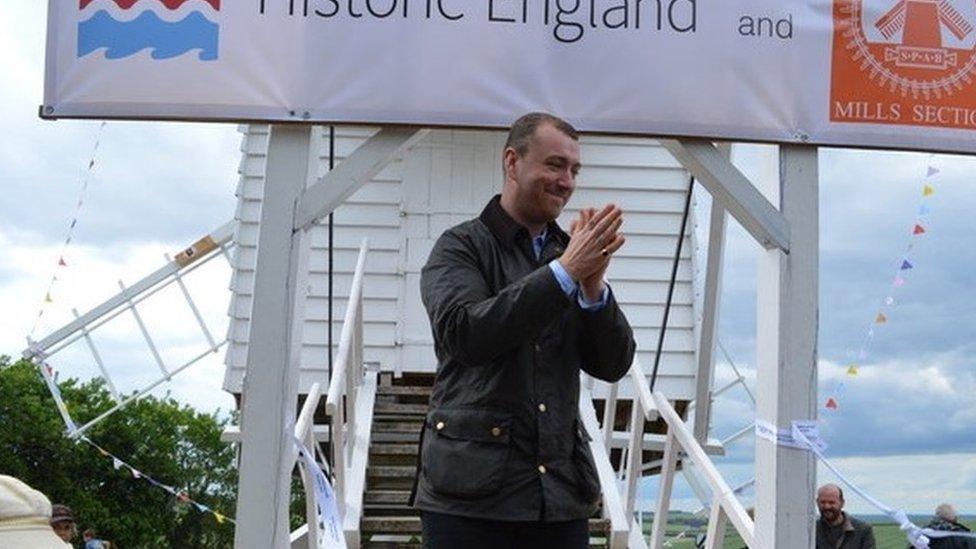
- Published14 April 2019
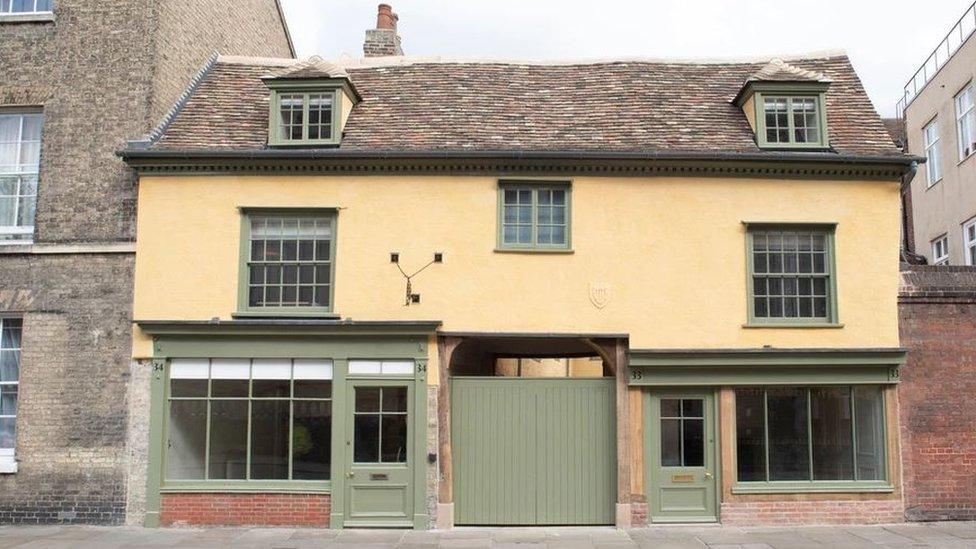
- Published20 December 2018
